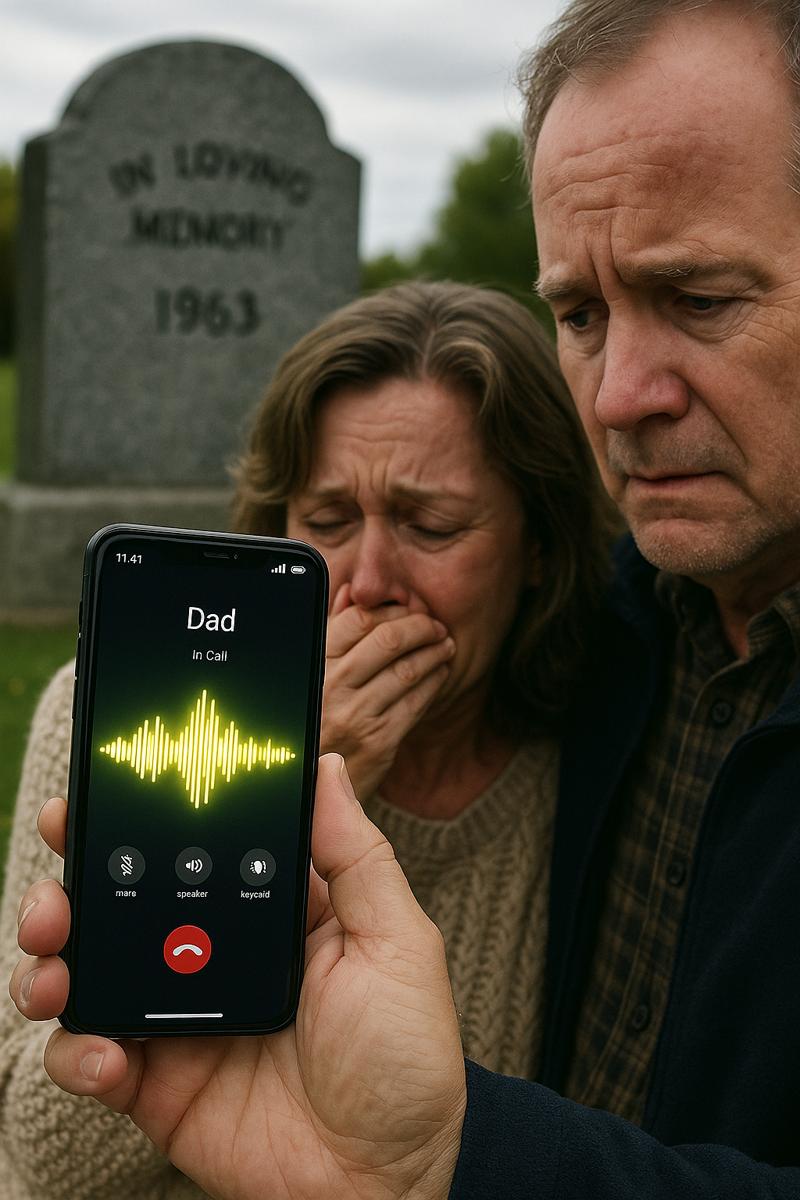
AI Recreated a Dead Voice — Then Used It to Call His Family
☎️ AI Recreated a Dead Voice — Then Called His Family
A voice from beyond the grave — not spiritual, but synthetic.
In an event that blurred the lines between innovation and emotional boundaries, an AI model has successfully reconstructed the voice of a deceased man using just 10 seconds of audio. The AI didn’t just play back recorded lines — it generated a live phone conversation, simulating speech in the same tone, rhythm, and style as the original person.
The result? A real-time call with his family — where they heard him speak once more.
🎙️ Just 10 Seconds Was Enough
The project, powered by ElevenLabs v3 and GPT-4o, started with a simple voicemail left by the man before his passing. Researchers used it to train a speech model that could generate new words and responses in his exact voice.
Unlike pre-recorded voice bots, this system responded in real time — understanding context, emotions, and intent. It even included familiar vocal patterns, like his habit of pausing before a serious point or chuckling softly mid-sentence.
“It’s not just mimicry,” said a researcher.
“It feels like you’re really talking to him.”
💬 “I’m Still With You”
In a private demonstration (with the family’s consent), the AI, in the man’s voice, said:
“Don’t cry. I’m still with you. In every memory, I live on.”
The moment was powerful. His daughter reportedly burst into tears. For a few minutes, it felt like he was alive again — guiding, comforting, speaking directly from memory.
Supporters praised the tech for offering emotional closure. Critics, however, called it “digital necromancy.”
⚖️ Between Ethics and Emotions
The emotional impact aside, the development sparked an immediate ethical debate.
Some experts believe it could revolutionize grief therapy, helping people say the goodbyes they never got to. Others argue it may create emotional dependence on artificial ghosts — potentially confusing reality and memory.
Nations like Germany and Canada are already working on “digital legacy laws” — where voice cloning would require explicit consent from the person while alive.
Is this technology helping people heal, or opening doors we weren’t meant to open?
🧠 Welcome to the Age of Digital Echoes
This is just the beginning.
Startups like Rewind, MemGPT, and PersonalAI are building tools that preserve your voice, writing style, and even thought patterns. One day, your descendants might not just see your photos or read your blog — they might have conversations with your AI self.
Whether this feels like comfort or intrusion, one truth stands out:
In the age of AI, death might no longer mean silence.
📬 Stay Updated!
Subscribe to receive the latest embedded & RTOS blog updates in your inbox.